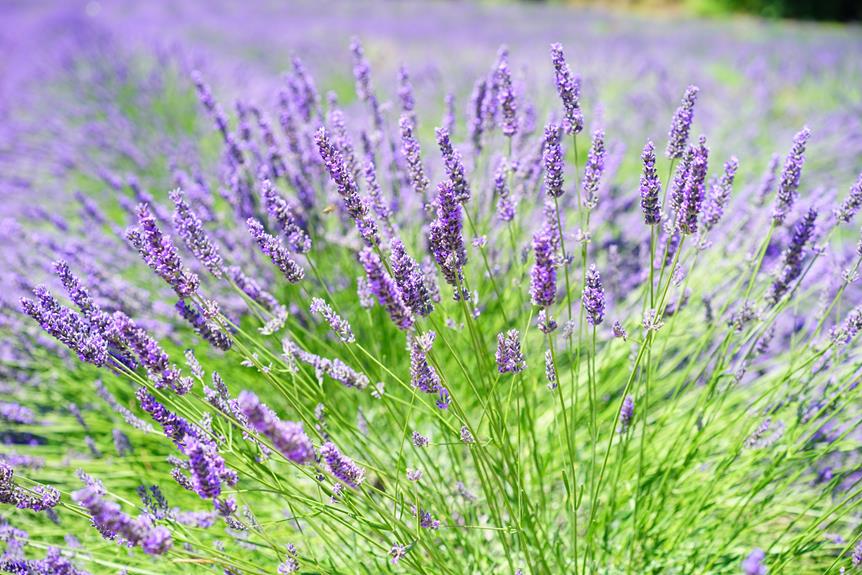Are you curious about the remarkable ways in which medicinal plants are being used today? From traditional herbal remedies to modern medicine, the applications of plant-based medicine are diverse and fascinating.
In this article, we will delve into the world of contemporary herbal medicine and explore its role in mental health, physical wellness, and skincare.
By combining ancient wisdom with scientific advancements, we can unlock the full potential of these natural remedies and enhance our overall well-being. Join us on this journey of discovery and belonging.
Traditional Herbal Remedies
Explore the effectiveness of traditional herbal remedies in treating various ailments.
When it comes to digestive health, herbal remedies have long been used by indigenous communities to alleviate digestive issues and promote overall well-being. These remedies, often derived from plants that have been passed down through generations, offer a natural and holistic approach to supporting the digestive system.
For instance, herbs like ginger, peppermint, and fennel have been traditionally used to soothe indigestion, reduce bloating, and relieve stomach discomfort. Scientific studies have also shown the potential benefits of these herbs, with evidence supporting their anti-inflammatory and antimicrobial properties.
Incorporating these traditional herbal remedies into your daily routine can provide a gentle and effective solution for maintaining digestive health and promoting a sense of belonging to a long-standing tradition of natural healing.
Medicinal Plants in Modern Medicine
When it comes to incorporating medicinal plants into modern medicine, you can harness the power of traditional herbal remedies to enhance treatment options for various ailments.
One area where medicinal plants are being explored for their potential is in cancer treatment. Researchers are investigating the anti-cancer properties of certain plants, such as turmeric, green tea, and ginseng. These plants contain compounds that have shown promise in inhibiting the growth of cancer cells and reducing the risk of metastasis.
Additionally, herbal medicine is also being considered for its role in chronic pain management. Plants like willow bark, ginger, and devil’s claw have been traditionally used for their analgesic properties. Studies have found that these plants contain compounds that can help alleviate pain and reduce inflammation.
Incorporating medicinal plants into modern medicine offers new possibilities for more effective and natural treatments.
Herbal Medicine in Mental Health
Incorporating medicinal plants into modern medicine can also provide potential benefits for mental health.
Herbal remedies for stress relief and natural remedies for anxiety management are gaining attention as alternative treatments for mental health conditions. Research suggests that certain herbs have properties that can promote relaxation, reduce stress, and alleviate symptoms of anxiety.
For example, chamomile has been found to have calming effects, while lavender can help with sleep and relaxation. Additionally, passionflower has been shown to reduce anxiety and improve overall mood. These herbal remedies can be used in various forms such as teas, tinctures, or supplements.
While it’s important to consult with a healthcare professional before using any herbal remedies, incorporating them into your mental health routine may provide additional support and relief.
Herbal Supplements for Physical Wellness
Are there herbal supplements that can enhance your physical wellness? Absolutely! Herbal supplements have been used for centuries to promote physical health and well-being.
When it comes to weight loss, certain herbal supplements can aid in boosting metabolism and reducing appetite. For example, green tea extract has been shown to increase fat oxidation and improve insulin sensitivity, resulting in weight loss.
Additionally, herbs like garcinia cambogia and forskolin have been traditionally used for their potential weight loss benefits.
On the other hand, when it comes to immune support, herbal supplements such as echinacea, elderberry, and astragalus have been found to enhance the body’s natural defense mechanisms and support a healthy immune system.
It’s important to note that while herbal supplements can be beneficial, it’s essential to consult with a healthcare professional before starting any new supplement regimen to ensure safety and effectiveness.
Herbal Medicine in Skin Care
To enhance your physical wellness, you can also explore the benefits of herbal medicine in skin care. Natural remedies for acne and herbal facials have gained popularity for their effectiveness in promoting healthy and radiant skin.
One of the key benefits of using herbal medicine in skin care is that it harnesses the power of nature to address skin concerns. Many medicinal plants, such as aloe vera, tea tree oil, and chamomile, have antibacterial and anti-inflammatory properties that can help reduce acne breakouts and soothe irritated skin.
Additionally, herbal facials, which involve the application of herbal extracts and oils to the skin, can provide deep hydration, rejuvenation, and nourishment.
Conclusion
In the vast realm of medicinal plants, the possibilities for contemporary applications are endless. From traditional remedies to modern medicine, herbal supplements have proven their worth in mental health and physical wellness.
Even in the realm of skincare, herbal medicine has found its rightful place. With a comprehensive and evidence-based approach, the practicality of incorporating medicinal plants into our daily lives becomes apparent.
Embrace the rhythm and flow of nature’s healing power, and unlock the secrets of holistic well-being.




